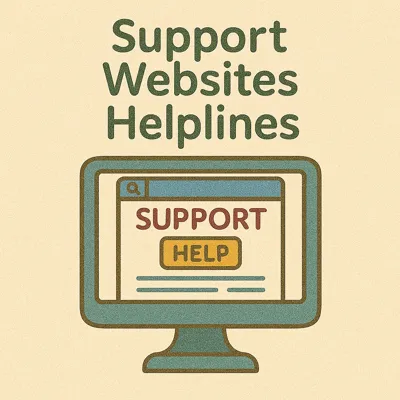Introducing the Self-Care Safety Planning Booklet
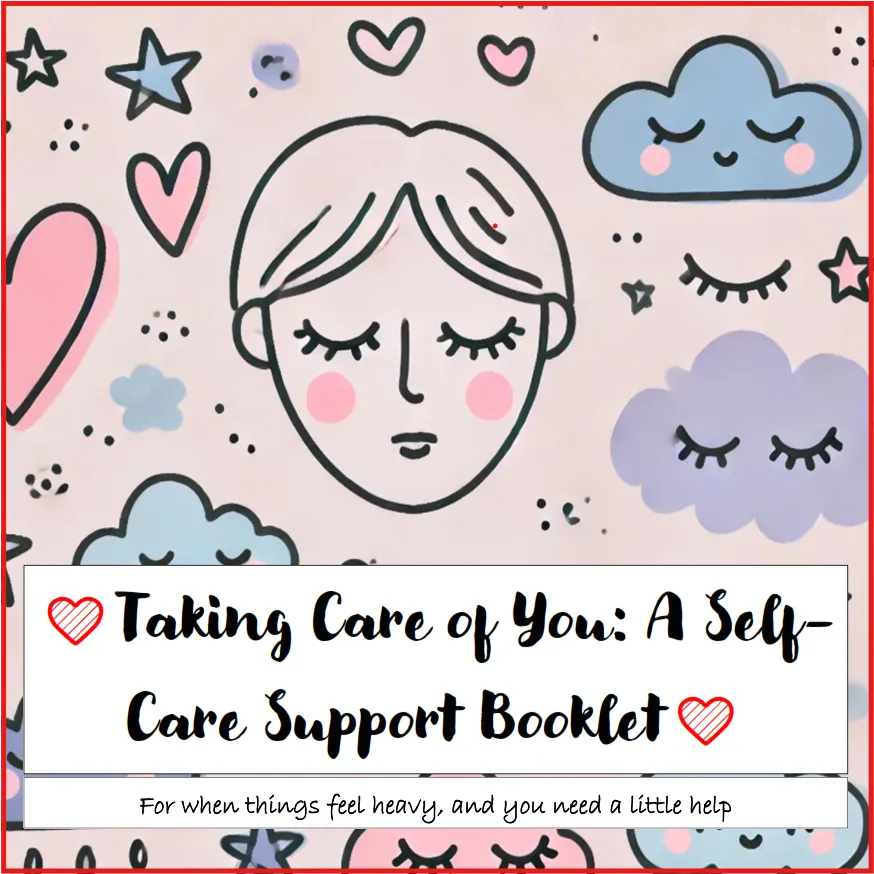
Supporting young people in managing their mental health and emotional wellbeing is vital. The Self-Care Safety Planning Booklet provides a structured, trauma-informed tool to help young people develop coping strategies, build resilience, and navigate emotional crises. This free resource is particularly helpful for those with SEMH needs, anxiety, ADHD, or neurodivergence.
This booklet offers both young people and practitioners a safe and effective way to navigate emotional challenges and crises.
What is the Self-Care Safety Planning Booklet?
Example Pages
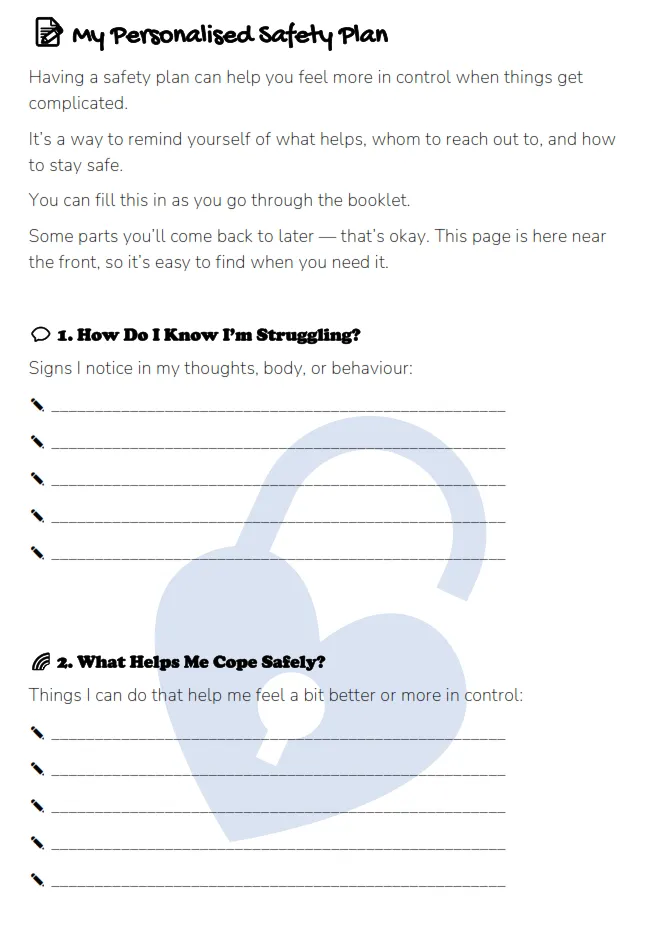
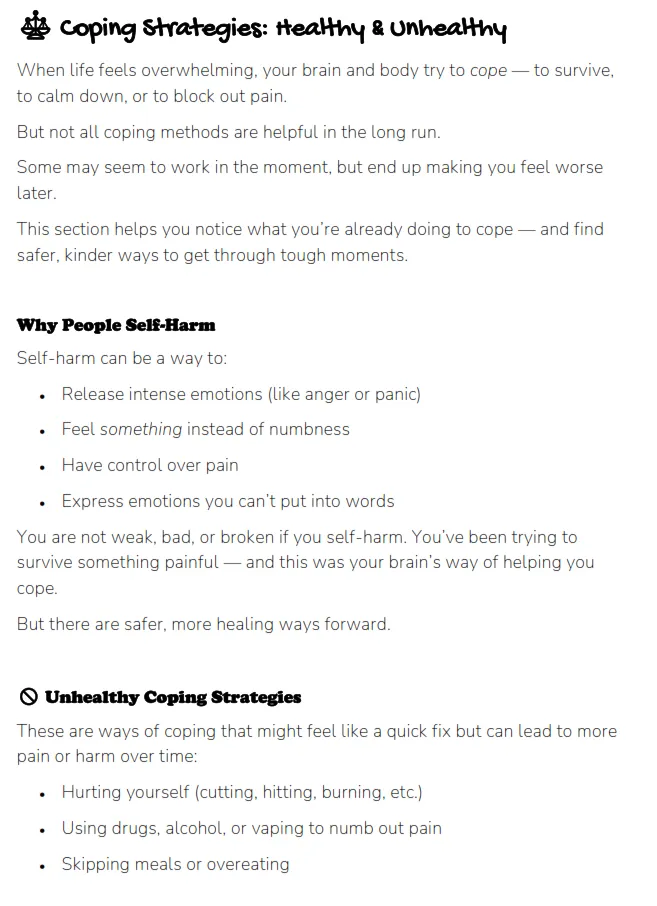
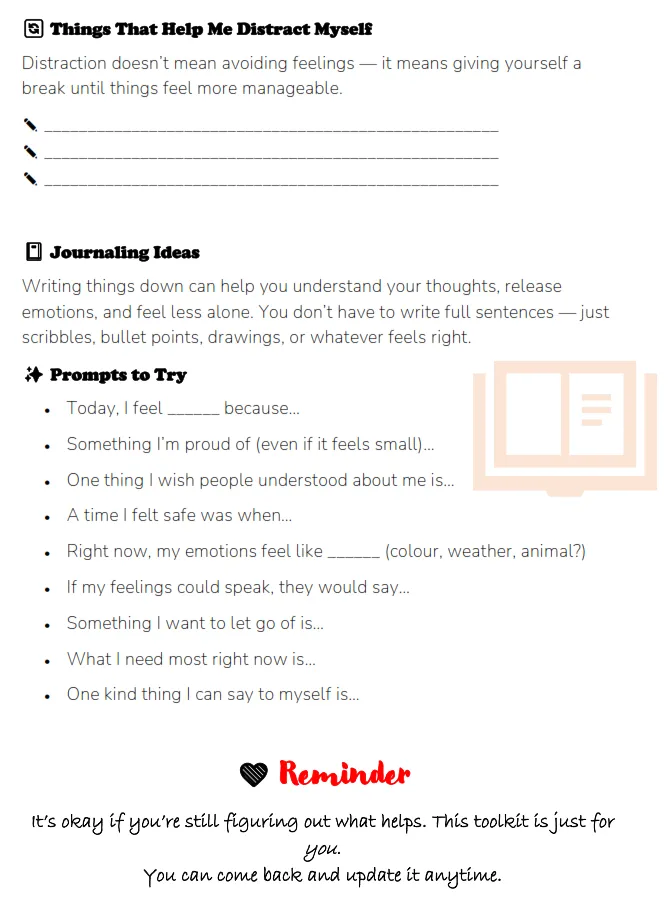
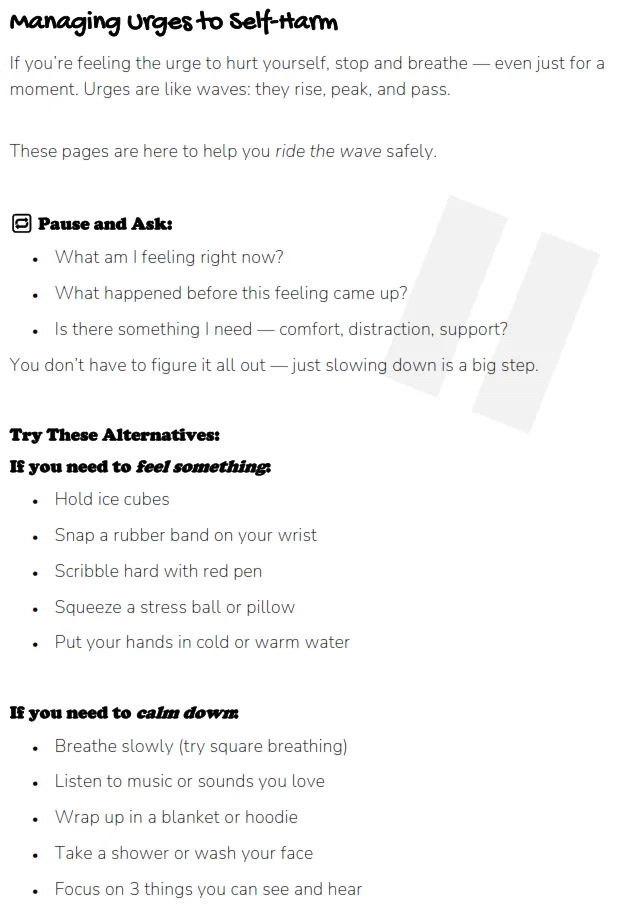
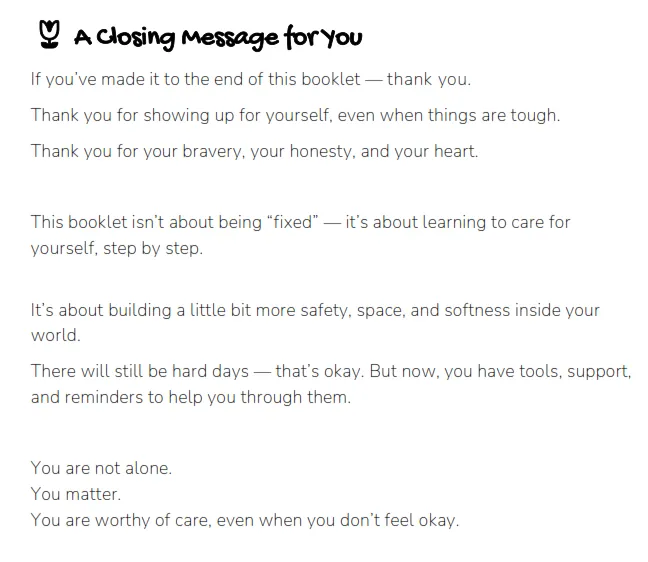

This bespoke resource has been co-created with input from young people, mental health professionals, and educational practitioners.
Its purpose is to help young people understand and manage their emotions, stay safe during times of distress, and reflect on strategies that support their mental well-being.
Trauma-Informed Self-Care Booklet
Why is the Booklet Helpful for Practitioners?
- Supports Ethical Practice: Helps practitioners maintain safeguarding clarity, promote young people’s rights, and uphold reflective and trauma-informed approaches.
- Demonstrates Impact: Feedback indicates improved emotional regulation and a reduction in self-harm, supporting practitioners in demonstrating measurable outcomes in their work.
Why is it Beneficial for Young People?
- Helps them manage emotional overwhelm and crises independently.
- Builds emotional literacy, self-confidence, and self-advocacy.
- Creates a personalised toolkit they can return to whenever needed.
- Promotes peer support and shared understanding among young people facing similar challenges.
Impact and Outcomes
Since its introduction, the Self-Care Safety Planning Booklet has helped young people develop emotional resilience, reduce harm, and feel empowered to engage with support networks.
It fosters positive relationships between young people and practitioners, contributing to more inclusive, youth-led, and reflective practices in education and youth work settings.
This booklet isn’t just a resource—it’s a lifeline for young people navigating emotional difficulty, offering practical support, personalised strategies, and a sense of hope.
